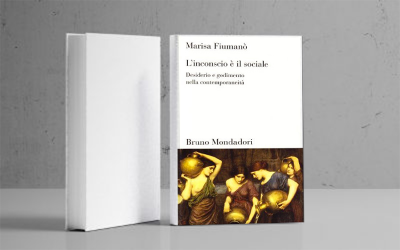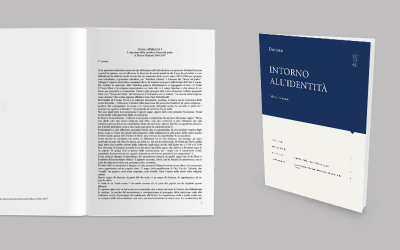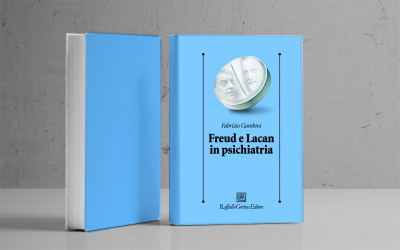Ethical and Aesthetic Explorations of Systemic Practice
New Critical Reflections
Autore: Pietro Barbetta, Maria Esther Cavagnis, Inga-Britt Krause, Umberta Telfener
Editore:
Anno: 2022
Pagine: 172
In Ethical and Aesthetic Explorations of Systemic Practice, the four co-authors come together to rhizomatically consider how systemic theories can be reinvigorated in the present day.
This fascinating book uses the ideas and work of renowned anthropologist Gregory Bateson as a springboard from which to examine the fundamental tenets of systemic theory and practice, as well as looking to the work of Deleuze, Guattari, Maturana, Varela and von Foerster. Including contributions from a range of renowned therapists, each chapter examines the guiding principles from a critical perspective, asking questions around the ontology of the therapeutic encounter and the technique of therapy itself.
This revivifying volume will be of interest to systemic professionals, and those looking at how the systemic community can continue to grow and evolve.
Table of Contents
1. Introduction: Why Ethic and Aesthetic in Systemic Practices 2. Two Regimes of Madness in Psychotherapy 3. Revolutionary Childhood 4. Thoughts from the Outside 5. Getting Sick from Psychotherapy: Our Co-Responsibility in Unintended and Undesired Outcomes 6. Aesthetics, Ethics and Politics in Childhood Matters 7. Clinical Practice as Ecological Aesthetics 8. Babel, Bebel and Other Dangerous Glossolalia 9. Postscript: The Event
Author(s)
Biography
Pietro Barbetta is a psychotherapist, Director of the Milan Center of Family Therapy and Professor of Psychodynamic Theories at Bergamo University, Italy. He is also works as an ethno-clinical therapist with asylum seekers and refugees, and has authored works in English, Italian, Spanish and French.
Maria Esther Cavagnis is the Director of Studies, Clinical Research Team Coordinator and Senior Tutor in the therapist training programme at the Family Therapy Foundation in Buenos Aires, Argentina. She is a visiting lecturer at several universities in Argentina and Latin America and has worked in private practice since 1982.
Inga-Britt Krause is a social anthropologist, Consultant Systemic Psychotherapist and Lead of the Professional Doctorate in Systemic Psychotherapy at The Tavistock & Portman NHS Foundation Trust, UK. She is an international systemic psychotherapy teacher, trainer and supervisor, Visiting Professor in Social Anthropology at the University of Oslo, and consultant to several contemporary anthropological research projects.
Umberta Telfener is a teacher at the Milan School of Family Therapy, Italy and is Chair of the European Family Therapy Association Training Institutes Chamber (EFTA-TIC). Formerly Adjunct Professor at the Health Psychology Postgraduate School of the University of Rome La Sapienza, she has supervised public mental health structures and worked in private practice since 1982. She has authored works in both English and Italian.
Ultimi articoli
Nessun risultato
La pagina richiesta non è stata trovata. Affina la tua ricerca, o utilizza la barra di navigazione qui sopra per trovare il post.
L’inconscio è il sociale. Desiderio e godimento nella contemporaneità
Il mito delle Danaidi, condannate da Giove a riempire perennemente una botte dal fondo bucato, è evocato da Lacan per definire la natura paradossale del godimento (jouissance), mai sufficiente a colmare il nostro corpo che ne è sempre alla ricerca. Il godimento ci attraversa incessantemente come un flusso inarrestabile. Come governarlo?
Intorno all’identità
Seminario di Marisa Fiumanò. Prima lezione …
Seconda lezione …
Terza lezione: L’algoritmo della metafora Nome-del-padre
Quarta lezione: Oggetto a e godimento nella perversione, nella fobia, nella nevrosi
Freud e Lancan in psichiatria
La psichiatria nel suo complesso è stata e resta sorda al discorso della psicoanalisi. È una sordità che merita di essere indagata e questo libro è un passo avanti in questa indagine. Rivisitando sulla base dell’esperienza clinica quotidiana il pensiero di Freud e di Lacan, l’autore tende a ricomporre in tutta la sua complessità la soggettività della sofferenza e il rapporto con le pratiche di cura che a questa si indirizzano, proponendone una teorizzazione che ne consenta la ”parlabilità”.



